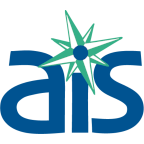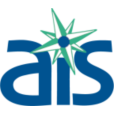
At Sea Monitor
AIS has provided At Sea Monitor (ASM) services to the Northeast Fisheries Observer Program since the programs inception in 2010 with the implementation of Amendment 16 to the Northeast Multispecies Fishery Management Plan. When it was originally created, the government awarded contracts to multiple providers, including AIS to provide ASM support services. In 2016, the ASM program became industry funded and AIS has continued to provide ASM services through direct contracts with individual groundfish sectors created with Amendment 16.
Currently, AIS works closely with individual sectors to meet the coverage requirements while deploying ASM in an unbiased manner per the requirements of the NMFS and the Pre Trip Notification System. AIS employs Monitors in strategic ports to maximize coverage and minimize travel costs. AIS is responsible for the recruitment, retention, and support of Monitors leading up to and during their deployment on commercial fishing vessels targeting groundfish to collect data for the NMFS. After successfully completing a 12 day training through the NMFS, Monitors are deployed on vessels using gillnet, handline, longline, and bottom otter trawl gear. Monitors are responsible for obtaining actual weights of the catch whenever possible, and use various subsampling methods when actual weights are unobtainable. Monitors also record lengths of certain priority species, as called for, by the sampling protocols dictated by NOAA Fisheries. Monitors work closely with the captain and crew to determine disposition codes for all species caught on a haul by haul basis. Additionally, any bycatch of marine mammals, sea birds or sea turtles are thoroughly documented.
Industry Funded Scallop Observer Program
AIS has been an approved provider for the Northeast Fisheries Observer Program’s Industry Funded Scallop (IFS) Program since its inception in 2006. The IFS program originated as part of an Emergency Action issued by the National Marine Fisheries Service (NMFS) in 2006 and was permanently reactivated in 2007 by the Amendment 13 to the Scallop Fishery Management Plan. The observer program was implemented using a scallop total allowable catch and days-at-sea set aside program that allows vessel owners to offset the cost of carrying an observer.
The data collected by the Industry Funded Scallop Observers is similar in scope to that of the Northeast Fisheries Observer Program Observers and includes information on vessel costs, gear used, location of fishing effort, weather data, and catch data for at least 50% of the hauls. After successfully completing a 14 day training run by the NMFS, AIS deploys IFS observers on federally permitted vessels targeting scallops on trips ranging in length from 1 day to 14 days. AIS has deployed IFS observers on trips sailing from ports from Maine to North Carolina under this program and covers vessels using dredge and trawl gear.
Northwest Atlantic Fisheries Organization
The Northwest Atlantic Fisheries Organization (NAFO) is an intergovernmental fisheries science and management body established in 1978 by the Convention on Cooperation in the Northwest Atlantic Fisheries, and applies to most fishery resources of the Northwest Atlantic except salmon, tunas/marlins, whales, and sedentary species (e.g. shellfish).
The primary objective of NAFO is “to ensure the long term conservation and sustainable use of the fishery resources in the Convention Area and, in so doing, to safeguard the marine ecosystems in which these resources are found.” To meet these objectives AIS provides Fishery Observer Support services for vessel trips in the NAFO regulatory area (NRA). The fishery observers are essential to monitor a vessels compliance with the conservation and enforcement measures that apply to the fishing effort, bycatch, gear, scientific sampling, and catch reports. The NRA lies beyond the areas in which Coastal States exercise fisheries jurisdiction (outside of the Exclusive Economic Zones). The three main fisheries that are regulated in the NRA are for groundfish, shrimp and pelagic redfish, however, there is currently a moratorium on the shrimp and pelagic redfish fisheries.

